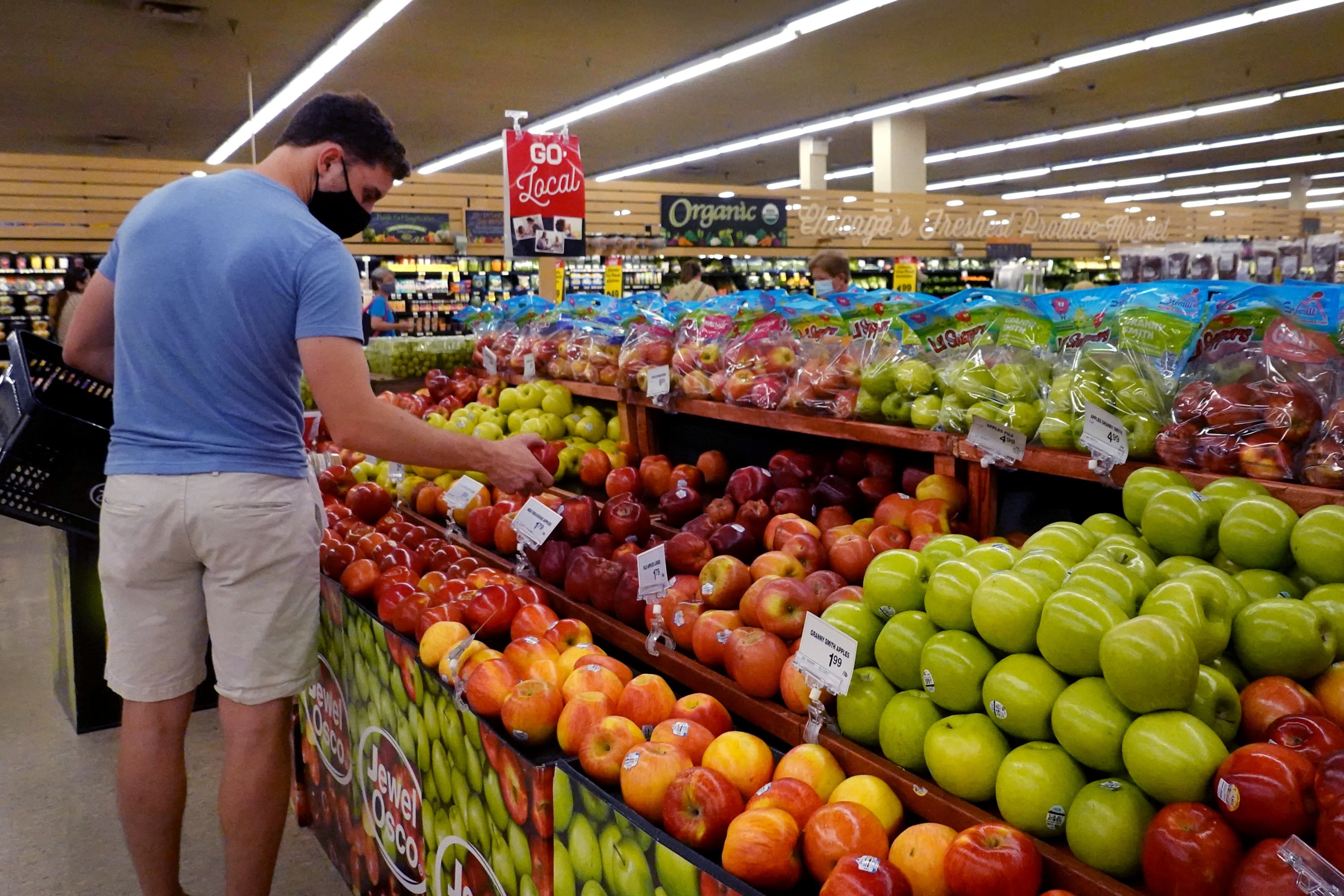
Customers shop for produce at a supermarket on June 10, 2021 in Chicago, Illinois. Inflation rose 5% in the 12-month period ending in May, the biggest jump since August 2008. Food prices rose 2.2 percent for the same period.
Scott Olson | Getty Images
Annual inflation rose at its fastest pace in more than 30 years during September despite a decline in personal income, the Commerce Department reported Friday.
Headline price pressures as gauged by the personal consumption expenditures price index including food and energy increased 0.3% for the month, pushing the year-over-year gain to 4.4%. That’s the fastest pace since January 1991.
Stripping out food and energy costs, inflation rose 0.2% for the month, in line with the Dow Jones estimate, and 3.6% for the 12-month period, unchanged from August but good for the highest since May 1991. The Federal Reserve prioritizes the so-called core PCE reading among a battery of measures it uses for inflation.
The continued inflation jump came as personal income declined 1% in September, more than the expected 0.4% drop. Consumer spending increased 0.6%, in line with Wall Street estimates.
The headline inflation rate was pushed by a 24.9% increase in energy costs and a 4.1% gain in food. Services inflation rose 6.4% on the year while goods increased 5.9%.
The inflation and income numbers come as the Fed is grappling with the specter of higher prices and lower growth. Gross domestic product increased at just a 2% annualized pace in the third quarter, the slowest since the recovery began off a recession that ended in April 2020.
Janet Yellen, U.S. Treasury secretary, during a Senate Banking, Housing and Urban Affairs Committee hearing in Washington, D.C., U.S., on Tuesday, Sept. 28, 2021.
Kevin Dietsch | Bloomberg | Getty Images
Compensation costs also climbed, rising 1.3% in the third quarter, ahead of the 0.9% estimate, the Labor Department reported. That brought the year-over-year increase to 3.6%, slightly higher than Q1 and the fastest acceleration since the second quarter of 2002.
Wages and salaries rose 4.6%, compared to 2.7% from September 2020.
Earlier in the morning, Treasury Secretary Janet Yellen, a former Fed chair, said she still expects inflation to dissipate, though she and other officials have acknowledged that has been more persistent and longer-lasting than expected.
“Year over year inflation remains high and will for some time simply because of what’s already happened in the first months of the year,” Yellen told CNBC from Rome and the G-20 summit. “But monthly rates I believe will come down in the second half of the year. I think we’ll see a return to levels close to 2%.”
Yellen noted that consumers have high levels of savings and cash that she said should boost growth ahead.
The savings rate for September was 7.5%, equating to $1.34 trillion, a decline from the 9.2% rate in August and the lowest monthly reading since December 2019.




